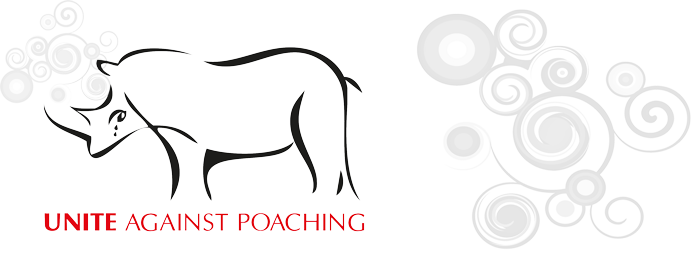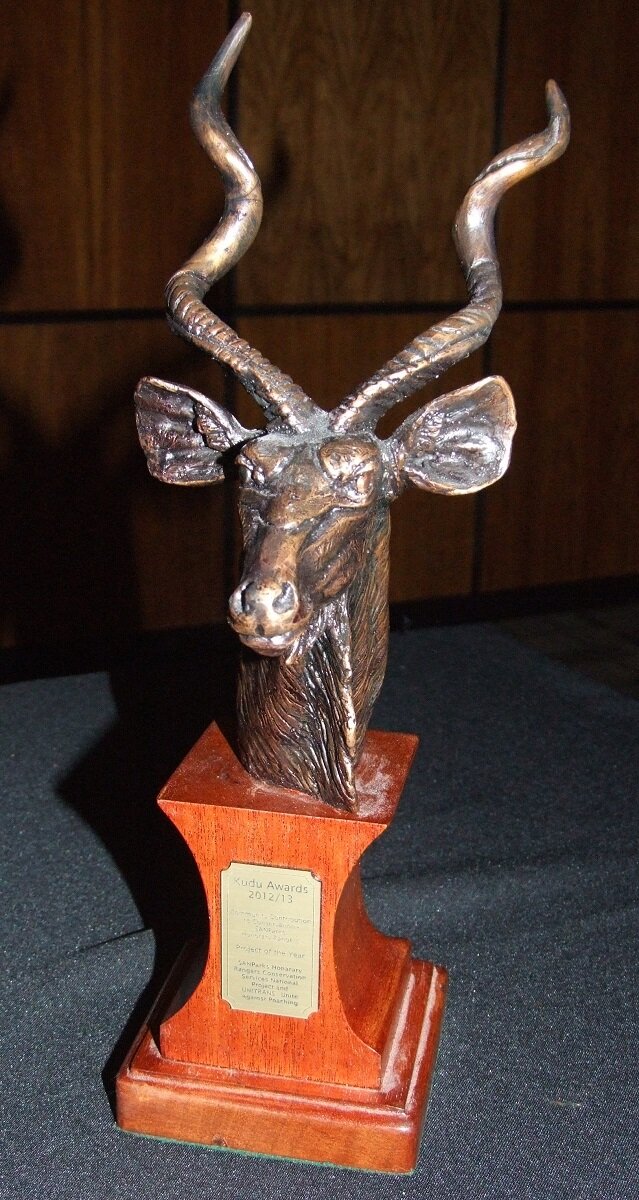Fascinating factual interview with Maj Gen Jooste
Aug 20 2014- Details
-
This interview was conducted by Scott Ramsay and posted in Africa Geographic
There’s a small sign above Major-General Johan Jooste’s desk at his office in Skukuza, the headquarters of Kruger National Park. It says: “Think Big, Start Small, Act Now”. It’s an apt credo for the man in charge of anti-poaching at South African National Parks.
The 61-year-old ex-army general joined the organisation in 2013, and has been tasked with one of the country’s biggest, most immediate challenges: combatting the scourge of rhino poaching. Last year, 606 rhino were killed in Kruger, out of a total number in South Africa of 1004. “We are fighting a war,” says Jooste, who retired from the army in 2006 after 35 years of service, but also has an MBA and has worked in business development in the arms industry.
I spent this past Saturday flying with General Jooste in one of the anti-poaching helicopters to visit the various section rangers that are based across the vastness of Kruger’s 20 000 square kilometres. We spoke about what he and his team of rangers are doing to fight the poachers, the strategy behind moving 500 rhinos out of Kruger, and the looming threat of elephant poaching.
Scott Ramsay: What is your exact role?
Johan Jooste: I was contracted for five years beginning of 2013 to head up anti-poaching within South African National Park. For now my job is all about Kruger and its rhino. I know there are other parks and other animals – not the least of which is elephant – but for now it’s Kruger and its rhino. That’s the battle we have to win now, without being shortsighted.
SR: What are you dealing with in Kruger?
JJ: We are fighting a war. These rhinos in Kruger are the most valuable cache of environmental assets in the world. Rhino horn is more valuable than gold or platinum. Gram for gram, its the most expensive commodity on the planet. Throughout Africa, rangers are performing military roles to battle poachers. We have to militarise our ranger corps. This problem will not go away. Supply meets demand in Africa. Poaching of rhino is low-risk criminal activity (compared to a cash-in-transit heist), it requires few logistics and it’s relatively easy. A poacher can easily carry a set of horns between 6 and 9kg and he earn millions of rand ultimately.
Read more: Fascinating factual interview with Maj Gen Jooste
Wedding gifts for rhinos
Aug 19 2014- Details
-
What a brilliant way to make a difference to the fight against poaching.
Mike and Sam McGill are a South African couple living in the UK. They visit South Africa often and always take the opportunity to spend some time in the bush. Their concern for the crisis facing the rhinos in our country prompted them to launch an initiative called "Wedding gifts for rhinos". The intention is that instead of wedding guests buying gifts for the couple, funds are pledged via the website and once the couple have recieved all the donations a payment is made to the anti rhino poaching initiative identified.
Sam and Mike used their own wedding as an inspiration to launch the initiative. They were married on 3rd May 2014 at Mongena Game Lodge just North of Pretoria.The result of their generosity and concern has resulted in a donation of a staggering R 46 126.01 to Unite against Poaching from their wedding. 100% of these funds will be used for anti- poaching projects in SANParks.


What a fantastic idea and what an amazing way to start your married life.
Thank you so much to Sam and Mike for their fantastic donation and for continuing this brilliant project.
Their website is www.weddinggiftsforrhinos.com

NOT ON MY WATCH - Molewa takes charge in fight for rhinos
Aug 18 2014- Details
-
15 August 2014
EDNA Molewa did not grow in a place of unspoilt natural beauty inhabited by wild animals. But the township in Warmbaths, now known as Bela-Bela, in Limpopo, did make the minister of environmental affairs tough and streetwise. And she does not mind taking difficult and controversial decisions about the environment. She endorsed the Transkei coast toll road and has, with reservations, come out in favour of fracking in the Karoo.
This week, she tackled another difficult decision and cleared up the confusion around plans to protect South Africa’s beleaguered rhinos. “Yes, I took charge. The poaching of rhinos is unbearable to me,” she said. “Things are going to change. You can’t just carry on doing things when you see it’s not working. We now know the rhino-poaching statistics [658 killed in South Africa this year, 418 in the Kruger National Park]. We now have the population statistics. It’s clearly telling us to do something even more drastic than what we’ve been doing. Our rhino population is now so sensitive. We need to make a bigger difference. The police need to step up [their efforts]. The board [SANParks] needs to speak up.” Do you care for rhinos or are you just doing your job? My job is to protect rhinos and I enjoy doing my job. South Africans did so much to ensure the existence of rhinos. I will not see that investment go to nothing. On my watch, our rhinos will not go extinct.

Read more: NOT ON MY WATCH - Molewa takes charge in fight for rhinos
The life of a Game Ranger
Aug 14 2014- Details
-
Louis Olivier's Speech presented at the Rhino Conservation Awards - 31st July 201

Good evening ladies and gentlemen. For those who might not know: Today, the 31st of July, is World Rangers’ Day.
May I first voice my gratitude to Dr Hansen & Ms. Yu, the founders of the Rhino Awards as well as the Department of Environmental Affairs, the Barclays Africa Group, and of course Currint Events and the Game Rangers Association of Africa and for their involvement in putting this function together.
This event, the third of its kind in which Rangers and others are being honoured for protecting our environment and of rhino in particular, is highly appreciated by those present here tonight.
Please allow me to elaborate a little on who Game Rangers are. And what they do.
The title Game Ranger was 1st assigned during the 13th Century in England when officials were appointed to range through the country side, providing law and order and acting against poaching. There are various descriptions known for Game Ranger but to my opinion, the first Director of the United States National Park Services, summed Rangers best up as follows:
They are a fine, earnest, intelligent and public spirited body of men, these Rangers. Though small in number, their influence is large. Many and long are the duties heaped upon their shoulders.
If a trail is to be blazed it is “send the Ranger”. If an animal is floundering in the snow, a Ranger is sent to pull it out. If a bear is in the hotel, if a fire threatens a forest, if someone is to be saved, it is “send a Ranger”. If somebody wants to know why, if a visitor is puzzled about a road, it is “ask the Ranger”.
Everything a Ranger knows, he will tell you, except about himself.
Read more: The life of a Game Ranger
Press release outlines Govt rhino management strategy
Aug 12 2014- Details
-
The South African Government will implement integrated strategic management of rhinoceros in South Africa. On 6 August 2014, Cabinet deliberated on discussed the 2013 rhino population census undertaken in the Kruger National Park and decided on integrated strategic interventions for the management of rhinoceros in South Africa.
The rhino population in South Africa was rescued from the brink of extinction in the early 1900s. At the time, the rhino population in the Kruger National Park was locally extinct. Since the start of the relocation of 351 rhino from the Hluhluwe-uMfolozi game reserve in KwaZulu-Natal to the Kruger National Park 50 years ago, the Kruger rhino population had increased to between 8 700 and 12 200 in 2010.
Read more: Press release outlines Govt rhino management strategy
More Articles...
- Ranger Monument Unveiled
- Police Commissioner welcomes the 77 year sentence
- Rhino poachers gets 77 year sentence
- No decision yet on rhino horn trade
- Elephant steamrolls rhino!






 Mitec Solutions
Mitec Solutions